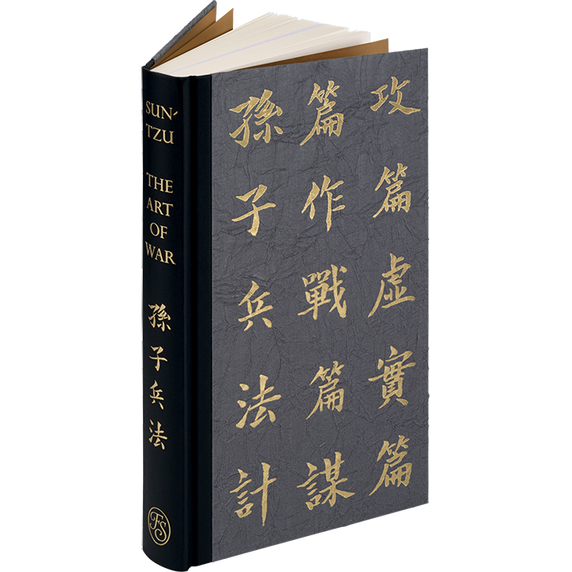
The Art of War
Written more than 2,500 years ago, The Art of War remains the most famous military treatise of all time. Sun-tzu’s collection of precepts on strategic warfare has yet to be surpassed.
Introduced by the author
Series Editor: Hew Strachan
Simon Ball’s Alamein joins the Folio Society’s fully illustrated Great Battles series: a masterful analysis of Montgomery’s famous Second World War victory against Rommel’s North African forces, and its controversial legacy.
Great generals were celebrities. Battles without celebrity generals were battles no one remembered. People remembered Alamein.
As a battle, El Alamein was a straightforward and resounding victory for the Allies against Rommel’s Afrika Korps and the Axis forces. Yet no military engagement of the Second World War has a more contested legacy – one that has prompted more than 300 books. Simon Ball’s superb study stands head and shoulders above the field, chronicling and evaluating a victory that ranks alongside Stalingrad and D-Day in the British psyche. This Folio Society edition includes two hand-drawn maps by Kevin Freeborn and 16 pages of vivid images, taking in battlefield photography, film posters and eyewitness paintings by war artists. Series illustrator Geoff Grandfield contributes the dramatic cover, in which Rommel and Montgomery face off in silhouette across the spine. Alamein is the definitive judgment on what Churchill called ‘the end of the beginning’ of the struggle against Hitler.
Quarter-bound in blocked cloth, with textured paper sides printed with artwork by Geoff Grandfield
Set in Garamond
248 pages
16 pages of mono & colour plates, plus 2 integrated maps.
Plain slipcase
9˝ x 5¾˝
Alamein is the fourth book in the Folio Society’s Great Battles series, following acclaimed studies of Waterloo, Thermopylae and Culloden. Under the editorial eye of military historian Hew Strachan, the series provides incisive, provocative accounts of the world’s most famous battles, written by acknowledged experts. Simon Ball deftly unpicks the battle and its cultural afterlife, drawing on an immense breadth of different sources. There is graphic testimony from soldiers and prisoners of war on both sides – many among them talented writers – alongside the pronouncements of generals, statesmen, official propagandists and armchair theorists, plus analysis of the vast number of novels and films inspired by the battle. Readable and engaging, Alamein shows how different factions have shaped the popular narrative of the Desert War – often using it to push their own agendas, shore up reputations and pursue private battles.
Simon Ball writes that ‘Alamein was always more important in Britain than anywhere else’: so significant a turning point in the war that Churchill ordered the nation’s church bells to be rung in celebration. But almost immediately, doubters pushed to diminish its importance – arguing that earlier victories, and the Allies’ superiority in men and machinery, made it a foregone conclusion. With up-to-date research, Alamein navigates the myths and realities of a battle fought by ‘celebrity generals’. It puts a spotlight on the personality cult of Erwin Rommel, and stubborn stereotypes of hapless Italian troops, an ineffectual ‘old guard’ swept away by Montgomery’s genius, and a fearless Afrika Korps unsportingly (and almost accidentally) routed by an unworthy Eighth Army. Ball builds a convincing case for why Alamein matters, and why we should still care about the Desert War’s greatest Allied triumph.
